Opera North Goes Green
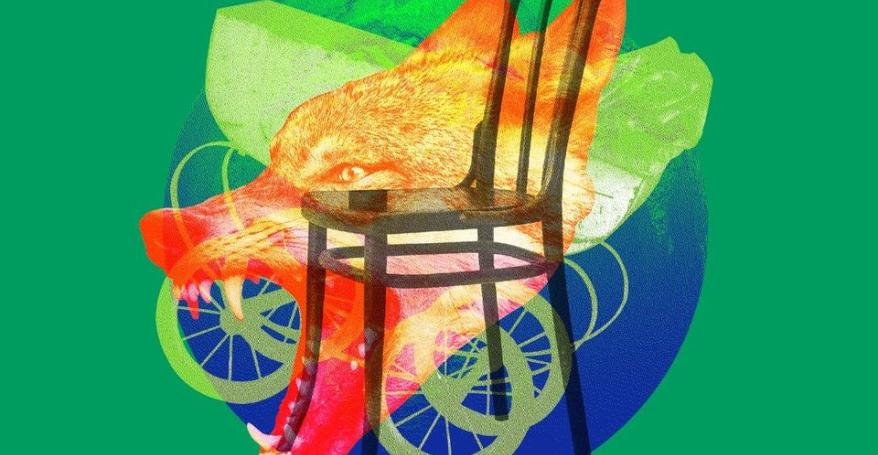
This autumn, Opera Goes Green! The environment lies at the heart of our next season as we prepare to stage three fully sustainable opera productions: Verdi’s Falstaff, Puccini’s La rondine, and Masque of Might, a newly-created piece from Sir David Pountney.
But that’s not all… here are some of the other ways we’re focussing on the planet in everything we do.
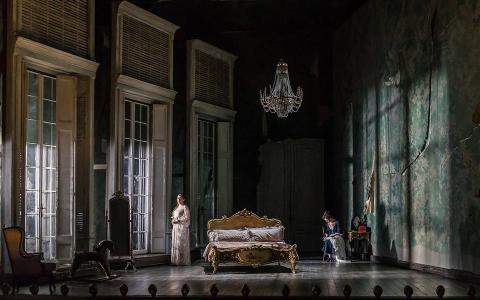
Re-using props and raiding our scenic stores, we’re creating magical new settings for three operas.
If you’re an Opera North regular, you may well spot some things you’ve seen before this season, as we’ll be reusing parts of the sets and some of the props which we’ve been keeping safe in our Stores since they were last on stage. Delving into this treasure trove has been an enjoyable trip down memory lane for designer Leslie Travers, an Opera North favourite, who will be designing all three sets for the Green Season:
“I love this history of the shows we’ve done together, and I’ve loved giving them another life for the Green Season. Falstaff, for example, features a bed that we used in Otello, windows from Figaro which we’ve resized and adapted, and the sky from Orpheus.”
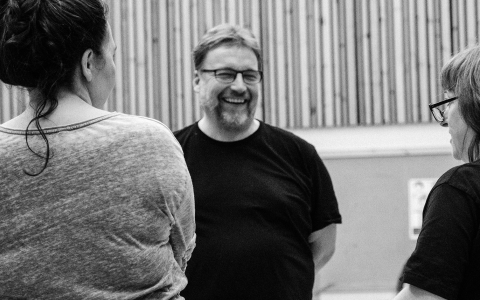
The planet takes centre-stage with climate-themed fantasy Masque of Might (even the lyrics are recycled!).
One of the must-see events of the season is the premiere of Masque of Might, a new fantasy by Sir David Pountney who has assembled a witty yet thought-provoking eco-entertainment from the music of Henry Purcell. When exploring the composer’s oeuvre, Sir David was intrigued by the echoes he found with today’s global concerns, in particular the gathering climate crisis:
“I just listened to the material and let the story emerge. One of the things that made an impression was the fantastic amount of apocalyptic language in this late-17th century body of work: effluent flowing into the rivers, bringing death everywhere; corpses adding to it; glaciers melting…”
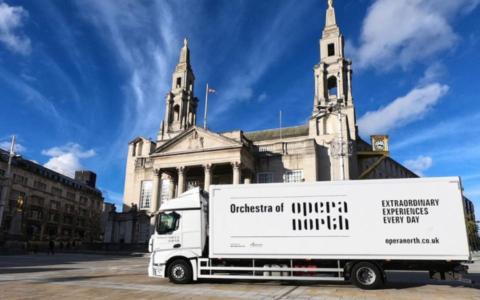
We’re taking fewer lorries on the road, reducing our touring emissions.
We love touring our productions across the north of England so as many people as possible can experience a live performance – but, transporting three opera productions between several cities throws up all kinds of environmental challenges.
One of the benefits of creatively using the same elements in the sets this season is that we’ll need fewer lorries to transport everything to and between our touring venues. That means lower fuel consumption, less congestion as we load and unload at each theatre and, ultimately, fewer emissions – a big plus as far as our sustainability aims go.
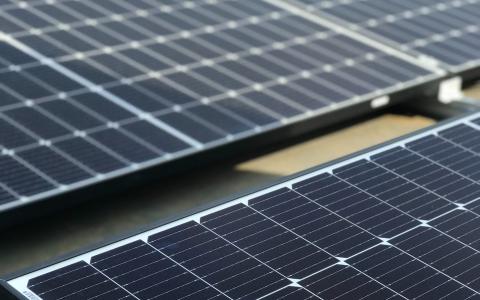
We now have solar panels on the roof, new LED stage lighting and renewable energy in our offices.
Our commitment to sustainability isn’t new. It’s something we’ve been actively championing for many years, looking at all aspects of the business and working out what can and should be done differently.
To take one example, Music Works, the recent redevelopment of the Company’s home in Leeds provided the perfect opportunity to take stock and incorporate some greener elements into the design. One outcome was the installation of solar panels on the roof of the Howard Opera Centre. This has enabled us to generate over 5,000 kilowatts per hour this year alone to help power our offices, rehearsal studios and more.
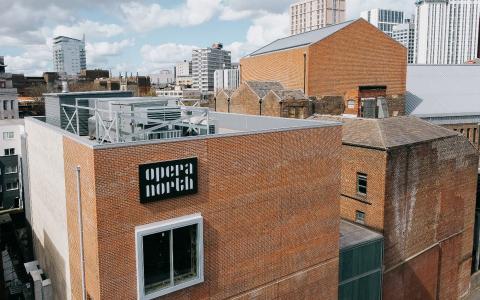
Alongside the city of Leeds, we’re aiming to be carbon neutral by 2030.
Jamie Saye, who is acting as our Sustainability Champion for the coming season, is the co-founder and Operations Manager of Sustainable Arts in Leeds (SAIL). That means he’s uniquely placed to understand the steps that need to be taken for Leeds to become a carbon neutral city and the role Opera North can play in helping achieve this aim:
“The important thing is that this process will have led to step changes throughout the Company, from supply chains to lighting rigs, to transport and touring practice, even working with transport providers to ensure our audiences can get to and from our performances with the least environmental impact. We’re committed to carrying on this interrogation of the way we work in the long term”.
Plus onsite restaurant Kino has a sustainable menue crafted from seasonal, locally-sourced food, we're partnering with travel companies to make public transport ticket deals, and we are encouraging our audience to go paperless from e-tickets to digital programmes.



